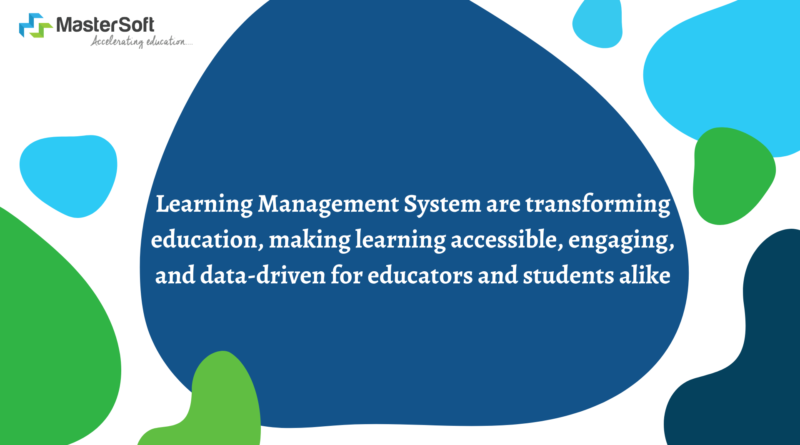Data-Driven Learning in Learning Management System
The landscape of education is undergoing a digital revolution. Gone are the days of static textbooks and teacher-centered lectures. Today, educators leverage a diverse array of educational technology (EdTech) tools to create engaging and interactive learning environments. At the forefront of this transformation are Learning Management System (LMS). These platforms have evolved beyond simply delivering online courses. This blog explores how data-driven learning is transforming LMS, empowering educators with valuable insights to personalize learning experiences, improve student outcomes, and optimize teaching strategies.
From Completion Rates to Deeper Insights: The Power of Learning Analytics
Traditional LMS primarily focused on tracking basic metrics like course completion rates and quiz scores. While this information offers a glimpse into student progress, it doesn’t paint the whole picture. Data-Driven Learning leverages the power of Learning Analytics (LA) to extract meaningful insights from the vast amount of data collected by LMS.
This data can include:
- Student Activity: Time spent on learning materials, completion rates for assignments, and interactions within the LMS platform.
- Assessment Performance: Scores on quizzes, exams, and other assessments.
- Engagement Metrics: Frequency of logins, participation in discussion forums, and completion of optional learning materials.
Unlocking the Potential: How Data-Driven Learning Benefits Educators
By harnessing the power of data analytics, educators can:
- Personalize Learning Experiences: Analyze student data to identify individual strengths and weaknesses. This allows educators to tailor learning activities and resources to cater to diverse learning styles and address knowledge gaps.
- Predict Potential Challenges: LA can identify students at risk of falling behind or struggling with specific concepts. Educators can then intervene proactively, providing additional support or differentiated instruction before students fall behind.
- Optimize Teaching Strategies: Data insights can reveal which teaching methods and learning materials are most effective for specific topics or student groups. Educators can then refine their teaching strategies to maximize learning outcomes.
- Measure Learning Effectiveness: LA provides educators with data to evaluate the effectiveness of their courses and learning activities. This allows them to identify areas for improvement and continuously enhance their teaching practice.
- Promote Self-Directed Learning: Learning analytics can empower students to track their own progress and identify areas for improvement. This fosters self-directed learning and encourages students to take ownership of their educational journey.
Advanced Data Analytics Features Transforming Learning
Modern LMS offer a variety of advanced features powered by data analytics:
- Adaptive Learning: LA can be used to personalize learning paths. The system can adjust the difficulty level of content based on student performance, ensuring students are challenged appropriately.
- Predictive Analytics: Advanced algorithms can predict which students are at risk of dropping out or performing poorly. This allows educators to intervene early and provide targeted support.
- Competency-Based Learning: LA can be used to assess student mastery of specific skills and knowledge. This allows educators to move students through learning materials at their own pace, focusing on mastery rather than simply completing coursework.
- Engagement Dashboards: Real-time dashboards provide educators with a quick overview of student engagement levels, allowing them to identify areas where students may be disengaged and adjust their approach accordingly.
The Future of Learning Management Systems: A Data-Driven Ecosystem
As data analytics continues to evolve, LMS will become even more sophisticated. We can expect to see:
- Integration with External Data Sources: LMS may integrate with external data sources like student information systems and career services platforms to provide a more holistic view of student progress and needs.
- AI-Powered Learning: Artificial intelligence can play a more prominent role in data analysis and personalization. AI-powered tutors and chatbots can offer students personalized support and feedback.
- Focus on Learning Transfer: Data analytics can be used to assess how well students are able to apply their learning in real-world situations. This will lead to a greater emphasis on transferable skills and lifelong learning.
The Benefits of Embracing Data-Driven Learning
There are numerous advantages to incorporating data-driven learning into your LMS:
- Improved Student Outcomes: Personalized learning experiences, targeted interventions, and data-driven teaching strategies all contribute to improved student engagement and academic performance.
- Enhanced Teaching Effectiveness: Educators gain valuable insights into student learning, allowing them to refine their teaching practices and become more effective educators.
Read More Blog Here

